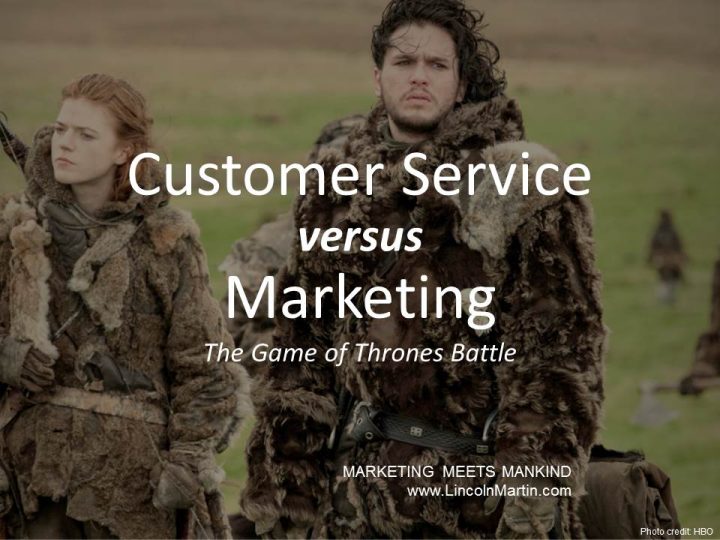
Customer Service vs. Marketing: Who Blames Who
As the world gradually recovers from the effects of the recent global economic crisis, companies are progressively working towards finding new customers and retaining existing ones to further fuel their corporate viability and growth. However, operating a business these days has become a more complex exercise, especially in light of myriad issues to consider and decisions to be taken. Departments, for instance, compete for the management’s attention and blessings, and oftentimes butt heads with each other for different objectives and contrasting functions.
Leveraging the Ears on the Ground
Take Marketing and Customer Service: The seemingly disparate roles of the two departments often result in heated office rivalries, which can ultimately affect the bottom line of the company. On the one hand, Marketing looks after generating leads and making sales, while on the other, Customer Service takes care of troubleshooting or resolving issues with disgruntled customers. At times, Marketing may blame Customer Service for losing clients or meeting difficulties in re-signing them, while Customer Service may ascribe the lack of product or service knowledge to poor client education prior to purchase.
As with the other interdepartmental conflicts that we have already taken up in the previous articles in this series, we will attempt to unravel the possible strategies that one can employ to foster collaboration and integration between the two departments, with the hope of breaking down the walls between them once and for all.
Learn to be Patient
A considerable number of studies show that a large part of purchases made on a whim will end up disappointing. There is enough reason to believe so: A customer who spends less time thinking about a purchase may have a less profound understanding of what exactly he or she is buying. And if they end up unsatisfied, they will surely let the guys over at Customer Service hear about it.
While it is essential to make sales, it is likewise important for a marketing person to make sure that a customer understands the real features or benefits of the product or service he or she is availing to minimize complaints and negative client experiences. Give the customer knowledge and satisfaction the importance that they should have. Marketers, and every employee in a company for that matter, must learn from Game of Throne’s Theon Grayjoy’s experiences: Many of his problems could have been avoided had he given more importance to others (customers) than to himself.
Learn to Invest Time
This point comes hot on the heels of the first. Educating clients takes time, but marketers should realize that it is time well-invested. Let customers not be Jon Snow, who is always accused of not knowing anything. According to studies, fully informing customers about products and services not only reduces the number of complaints but also, and more importantly, increases the likelihood of retaining them. Additionally, happy and smart customers pave the way to better company reputation and, ultimately, more sales.
Learn to Update
Marketing should also ensure that Customer Service is knowledgeable of current promotions by the company so that it can fully perform its function of clarifying doubts and confusion. Even if this does not directly reduce the number of customer complaints or questions, it will help Customer Service prepare comprehensive answers.
There is merit in making Customer Service a relevant part of company’s marketing strategy. For sure, being the closest to the ground, Customer Service agents have ideas and opinions that can help formulate an effective marketing plan. After all, they know best what the customers want and how to make them happy.
OTHER RELATED ARTICLES:
- Game of Thrones’ Interdepartmental Conflicts (click here)
- Production vs. Marketing (click here)
- Sales vs. Marketing (click here)
- Finance vs. Marketing (click here)
- HR vs. Marketing (click here)
- Engineering vs. Marketing (click here)
- IT vs. Marketing (click here)
- Supply Chain vs. Marketing (click here)
- Procurement vs. Marketing (click here)
- Operations vs. Marketing (click here)
- Marketing vs. Other Departments – The Conclusion (click here)
Want to have a collaborative marketing department? Email us at ems@lincolnmartin.com
